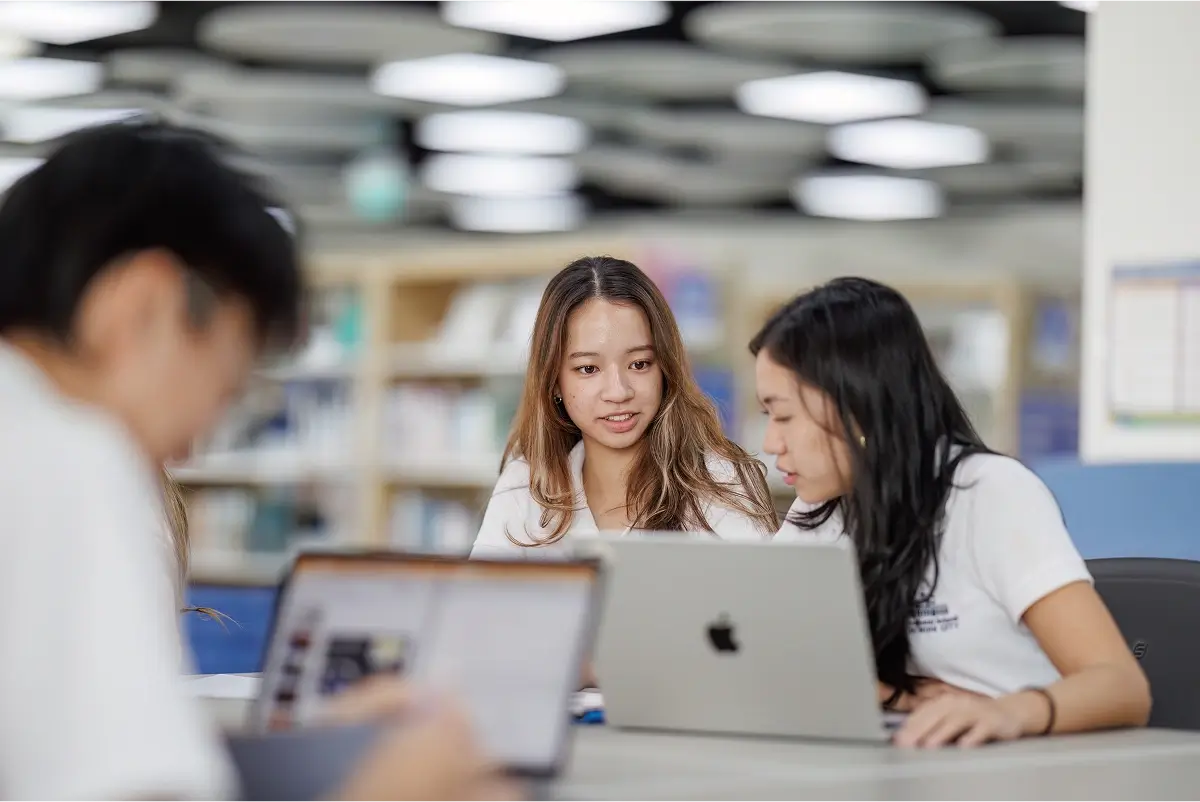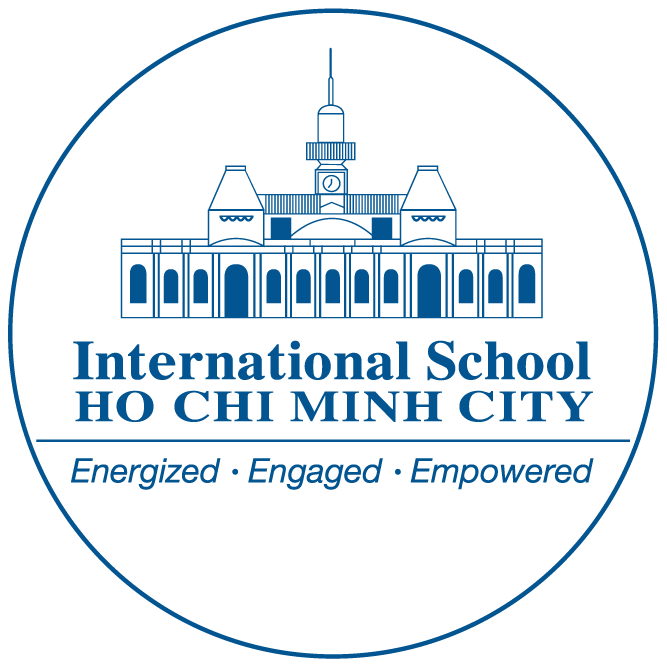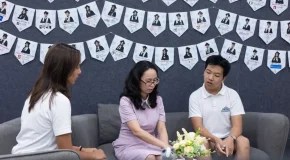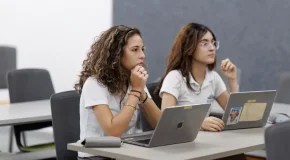What Is Reflective Learning? Why It Matters for IB Students
Reflective learning helps students become aware of how they learn, why certain strategies work for them, and how they can improve. This approach allows students to take ownership of their progress by reviewing past experiences, identifying successes or gaps, and applying new strategies.
For students in the International Baccalaureate (IB) Programme, reflective learning is essential for developing the mindset and habits that support long-term academic and personal growth.
What Is Reflective Learning in IB Schools?
Reflective thinking means examining the learning process itself. It involves students reviewing their decisions, actions, and outcomes, and making adjustments to improve future performance. Instead of focusing only on results, reflective students ask questions about how they approached a task, how their mindset affected the outcome, and what they could do differently. This promotes independent learning and supports deeper understanding over time.
Examples of Reflective Thinking
Reflective thinking becomes visible when students take time to evaluate their experiences. It does not depend on formal settings or structured assessments. Reflection often happens during natural pauses in learning. A student might stop to consider how they approached a task, how they responded to feedback, or how their choices affected the outcome.
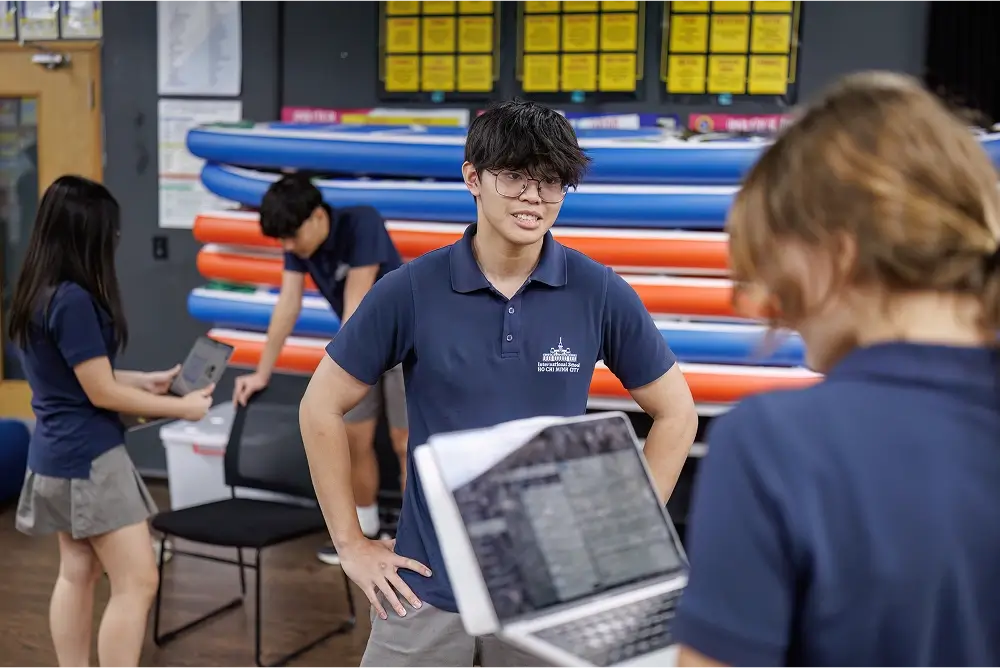
The following examples show how this process develops at different stages of school life.
- Group work debrief: After a team project, a student evaluates how they contributed to the group, identifies what helped the collaboration succeed, and recognizes areas for improvement in communication.
- Journal entry: A student reflects on a recent challenge in math, describing the problem-solving strategies they used and which ones they plan to strengthen.
- Goal review: After setting academic goals at the start of the term, the student reviews their progress and identifies what has helped or hindered their ability to stay on track.
- Peer feedback discussion: Following a presentation, the student receives feedback from classmates and evaluates how they communicated their ideas and how they might improve next time.
- Personal reflection at home: A parent observes their child talking about a tough day at school, but instead of focusing only on emotions, the student talks through what they learned from the experience and how they will approach it differently tomorrow.
These habits strengthen awareness, encourage responsibility, and help students connect classroom activities to personal growth. As reflection becomes part of the learning culture, students begin to recognize how they learn effectively and where to focus their efforts next.
Why Reflective Thinking Builds Stronger IB Students
Reflective thinking enhances how students engage with challenges, process feedback, and take initiative in their learning journey. In the IB environment, these habits form the foundation of personal and academic progress.
- Deepen understanding: Students revisit what they learned and explore why they found a concept difficult or meaningful. This creates more meaningful engagement with the subject matter.
- Strengthen independence: Reflection allows students to manage their learning without relying entirely on instruction. They begin to identify effective strategies, take initiative, and evaluate progress on their own.
- Build resilience: By analyzing what didn’t go as planned, students develop emotional strength and problem-solving habits. They see setbacks as opportunities to improve. ISHCMC encourages students to reflect on setbacks as part of their learning process, which helps them build emotional strength and problem-solving habits.
- Develop self-awareness: Reflection trains students to recognize their thinking patterns, strengths, and learning preferences. This awareness helps them adjust in real time and stay motivated.
- Transfer skills to real life: Reflective habits apply well beyond school. Students who reflect become more capable of navigating challenges, setting goals, and making informed decisions. At ISHCMC, students learn to apply reflective thinking to real-world contexts, preparing them to make thoughtful decisions and adapt to new challenges.
- Support the IB mission: IB programmes are designed to develop globally aware, principled, and curious learners. Reflection is a requirement across all stages of the IB curriculum and supports attributes such as being open-minded, balanced, and thoughtful.
When students develop the habit of reflection, they gain the confidence and flexibility to face new situations with clarity and purpose. This is what sets thriving IB learners apart.
How ISHCMC Develops Reflective Learners
IB schools build reflective habits by embedding them in classroom practice, school culture, and long-term learning goals. They establish these habits gradually through consistent routines, teacher guidance, and regular opportunities for students to think about their learning.
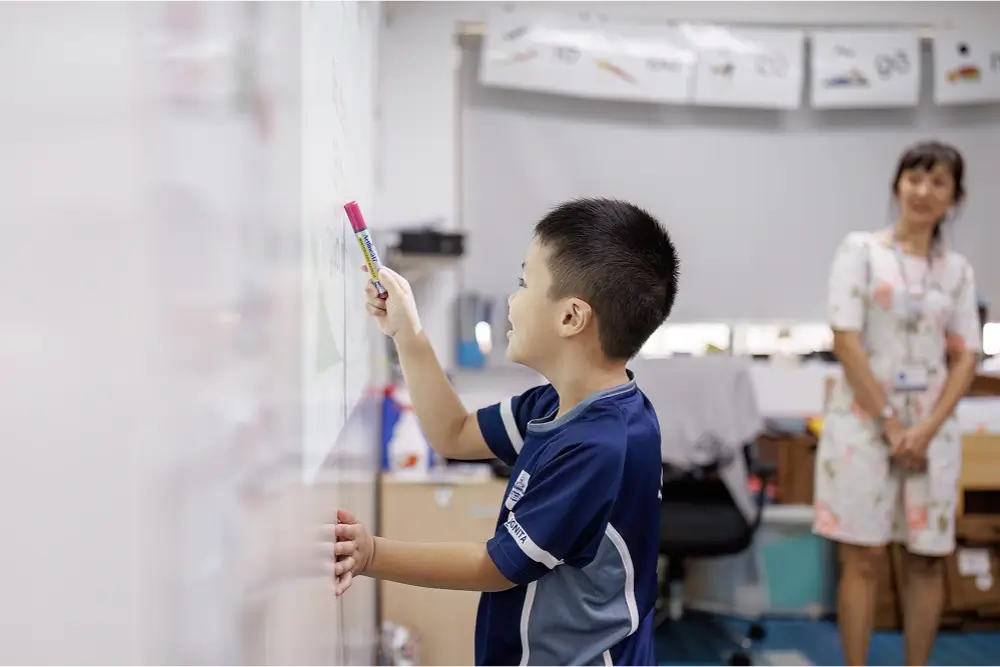
Build Reflective Across Every Age Level
IB schools introduce reflective learning early and reinforce it consistently through each stage of a student’s development. In the early years, reflection may take the form of simple check-ins or guided conversations. As students progress, schools introduce more structured tools such as learning journals, peer reviews, and goal tracking. By the time students reach upper secondary levels, they use reflection to analyze complex challenges, evaluate their growth, and refine their academic strategies.
Students in the International School Ho Chi Minh City’s Primary Years Programme (PYP) practice daily reflections during morning meetings and through student-led conferences. Middle Years Programme (MYP) students review personal learning goals through written reflections. In the Diploma Programme (DP), students participate in guided self-assessments and use structured rubrics to evaluate their performance. These practices build consistency and familiarity, allowing students to see reflection as an expected and valuable habit.
Promote Thoughtful Learning Through Inquiry
Inquiry-based learning encourages students to explore questions, investigate ideas, and construct their own understanding. Instead of memorizing information, students examine real-world issues, question assumptions, and strengthen their reasoning. This approach promotes curiosity, independence, and deeper engagement, which makes reflection a natural part of the learning process.
Teachers at ISHCMC frame lessons with questions that invite curiosity and discussion. Instead of giving answers, they prompt students to think critically about why something matters. This process naturally invites reflection. When students are part of the inquiry, they begin to evaluate how their own thinking contributes to the outcome, rather than focusing on rote answers.
Strengthen Growth Through Approaches to Learning
The IB school prioritizes approaches to learning skills across all stages of the programme. These skills include critical thinking, self-management, communication, and collaboration. Schools use them to help students become more aware of how they learn and how to adjust their strategies for better outcomes.
At ISHCMC, teachers build these skills into daily learning. Students use planning tools to track their progress, participate in structured peer reviews, and respond to teacher feedback in real time. Teachers integrate these habits into classroom routines and assessments to help students monitor their development and take responsibility for improving their performance.
Guide Student Reflection in Real Time
Teachers play a central role in shaping how students reflect on their learning. In IB classrooms, they prompt students to pause, revisit their thinking, and make intentional adjustments. These moments help students stay focused on progress rather than outcomes and build habits that support long-term growth.
ISHCMC’s teachers use strategies such as learning journals, exit reflections, and verbal check-ins during and after lessons. They guide students to evaluate their efforts, recognize improvement, and plan their next steps. By modeling reflective thinking consistently, teachers help students build the language, structure, and mindset they need to reflect effectively.
Prepare Students for the Future Through Reflection
As students move through life, they encounter new challenges that require clear thinking, adaptability, and emotional control. Reflection gives them a way to process these moments, learn from experience, and respond with intention. The ability to step back, evaluate, and refocus becomes a long-term advantage in both personal and professional environments.
Graduates from ISHCMC often credit this reflective culture with shaping how they approach university life and future careers. They leave school knowing how to direct their learning, adjust to change, and apply thoughtful strategies in unfamiliar situations. Whether they pursue design, entrepreneurship, engineering, or athletics, they carry with them a mindset built on awareness, purpose, and continuous growth.
The Benefits of Reflection for Lifelong Success
Reflective learning equips students with the skills to learn beyond the classroom. It helps them ask better questions, take responsibility for their growth, and connect their learning to real-life challenges. These habits create stronger learners and more resilient individuals.
ISHCMC places reflection at the core of learning. From early years to graduation, students use it to think critically and take ownership of their progress.. This environment fosters personal agency, deeper understanding, and long-term success.
To see how ISHCMC develops thoughtful, capable learners through reflective practice, explore the IB programmes today. Apply now to give your child an environment that builds skills for life.

